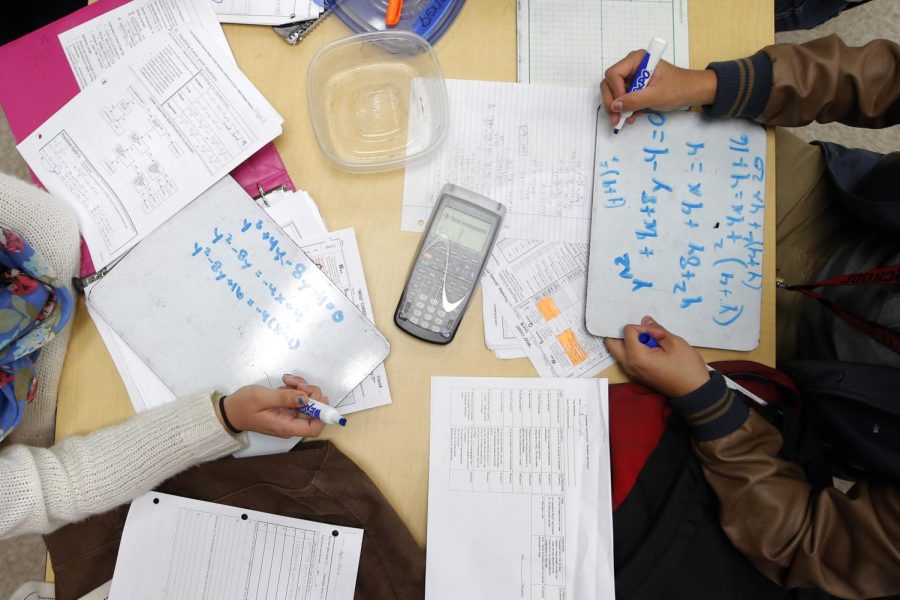Learning vs. “Getting By”: Students Stressed with Homework Overload
Students solve problems in a pre-calculus class.
September 16, 2022
When finally getting home after a full day of school, a two hour sports practice and five hour work shift, what student is eager to get to their desk, lay out all of their papers and start on the three hours of homework they have ahead?
When it comes to balancing school with a selection of several other activities such as extracurriculars and jobs, it can get stressful. With homework every night and an after school sport or job, there is no time for students to play catch-up.
Many students handle a busy schedule like this every week. A survey sent out to students said 68% work a job during this school year, 57% of them play a sport as well. How do they juggle homework assignments, tests and projects with hours of work and extracurriculars?
“It definitely gets stressful at times,” senior Mackenzie Petry said. “I feel super overwhelmed with practice five days a week. Not to mention, working 25 hours a week during the school year.”
Yet, several chapters of reading or multiple papers to write are presented with tomorrow as a due date. 53% of students said that they have homework in three to five classes every day.
Students feel pressured when it comes to the amount of homework in each of their classes. “I think that homework is important but sometimes it is way too much for someone who has a full course load as well as extracurricular responsibilities,” senior Nathan Hollis said.
Teachers should keep in mind that students are getting multiple assignments from other classes as well, so adding their own to the agenda can make it difficult to stay on track.
In many students’ opinions, homework is essential to the learning experience, but the quantity for each and every night is unnecessary. Finland uses a school system that does not give out homework as often as the United States does, and they have one of the highest ranked education systems in the world, according to the New York Times.
“We are just learning how to make it by and not what we really should be learning,” Petry said.
Even during class, students aren’t paying attention because they are trying to complete either the homework assignment given last night that they didn’t have time to finish or the newest release of work so they don’t have homework that night.
As a result, they’re not learning the material being presented that day, which causes them to fall behind schedule. So really, is the cycle never-ending? More work will have to be done in the long run anyways.
For teachers, this isn’t good either because requirements aren’t met, causing the students’ grades to decrease. Lesson plans could fall apart just like that, causing stress for the teachers as well.
While a lot can be said about the amount of assignments, students also struggle with procrastination, making matters worse. 82% of them fight the urge to wait until a later time to do their work. This causes more stress in the future as well.
Many students suggest tips such as scheduling a study hall during the school year, putting the phone and other distractions away when working on assignments or having a planner to organize homework for each day.
While these are great recommendations, a number of students requested more time to work on homework during class. Some even suggested spacing out the assignments so they have the opportunity to actually understand and do well on it.
“In my opinion, I think teachers should be giving minimal homework in the first place,” Petry said. “The schedule is way overloaded. College kids may get assignments but not near as many and especially ones that are due as fast as our turn around. Ultimately, isn’t college what they’re supposed to be preparing us for?”












